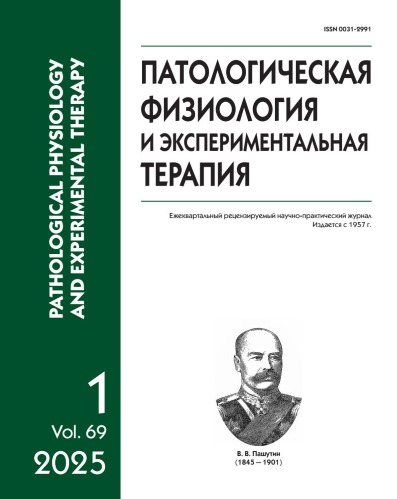The effect of lithium chloride on the level of pro-inflammatory cytokines after traumatic brain injury
Abstract
Background. Traumatic brain injury (TBI) is an urgent problem of the 21st century lying at the confluence of socio-legal and medical sciences. The scientific search for a drug capable of improving the clinical outcome of the disease is undoubtedly a priority task. Aim. To study the effect of lithium chloride on the concentration of pro-inflammatory cytokines in a rat model of TBI.
Methods. Experiments were performed on male Wistar rats divided into three groups: 1) intact rats, 2) control, and 3) TBI+lithium 63 mg/kg. The brain concentrations of mRNA of the IL-1 beta, IL-6 and TNF-α pro-inflammatory cytokine genes were measured by real-time PCR.
Results. Modeled TBI significantly increased the concentration of IL-1beta in the perifocal zone of brain injury to 339±45 conv. units in comparison with the intact group (p=0.007), while the use of lithium chloride significantly decreased the concentration of IL-1beta compared to the control group. Modeled TBI significantly increased the concentration of IL-6 in the perifocal zone of traumatic injury to 155±15 conv. units compared to the intact brain (p=0.04). Administration of lithium chloride 63 mg/kg insignificantly reduced the concentration of IL-6 compared to the control group (p=0.08). Modeled TBI significantly increased the concentration of TNF-α in the perifocal zone of traumatic injury to 129±32 conv. units compared to the intact brain (p=0.04). Lithium chloride 63 mg/kg left unchanged the TNF-α concentration compared to the control group (p=0.1).
Conclusion. Administration of lithium chloride at a dose of 63 mg/kg to rats after TBI significantly reduced the concentration of IL-1beta cytokine.






